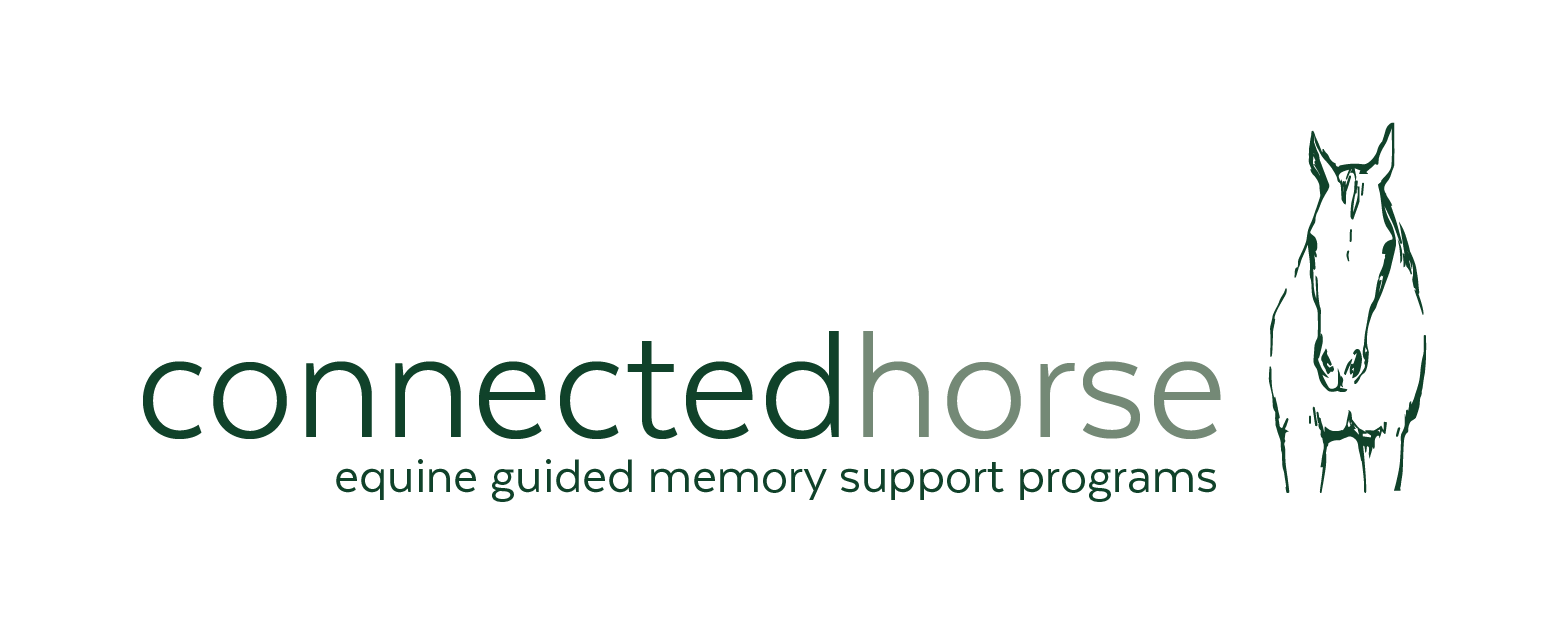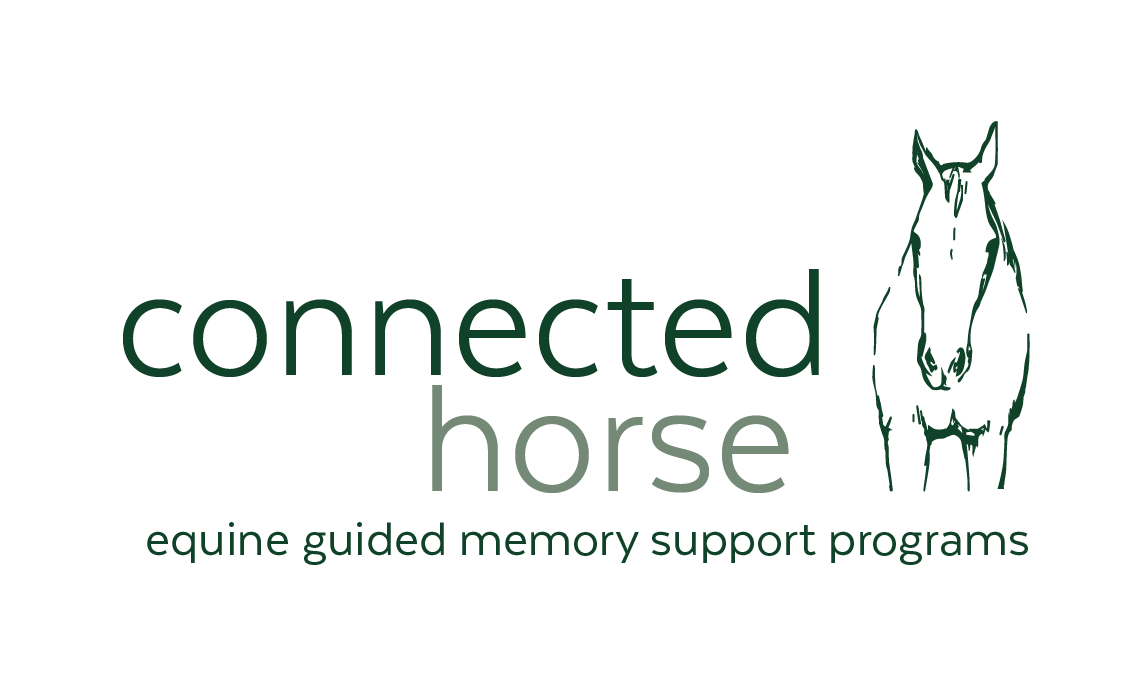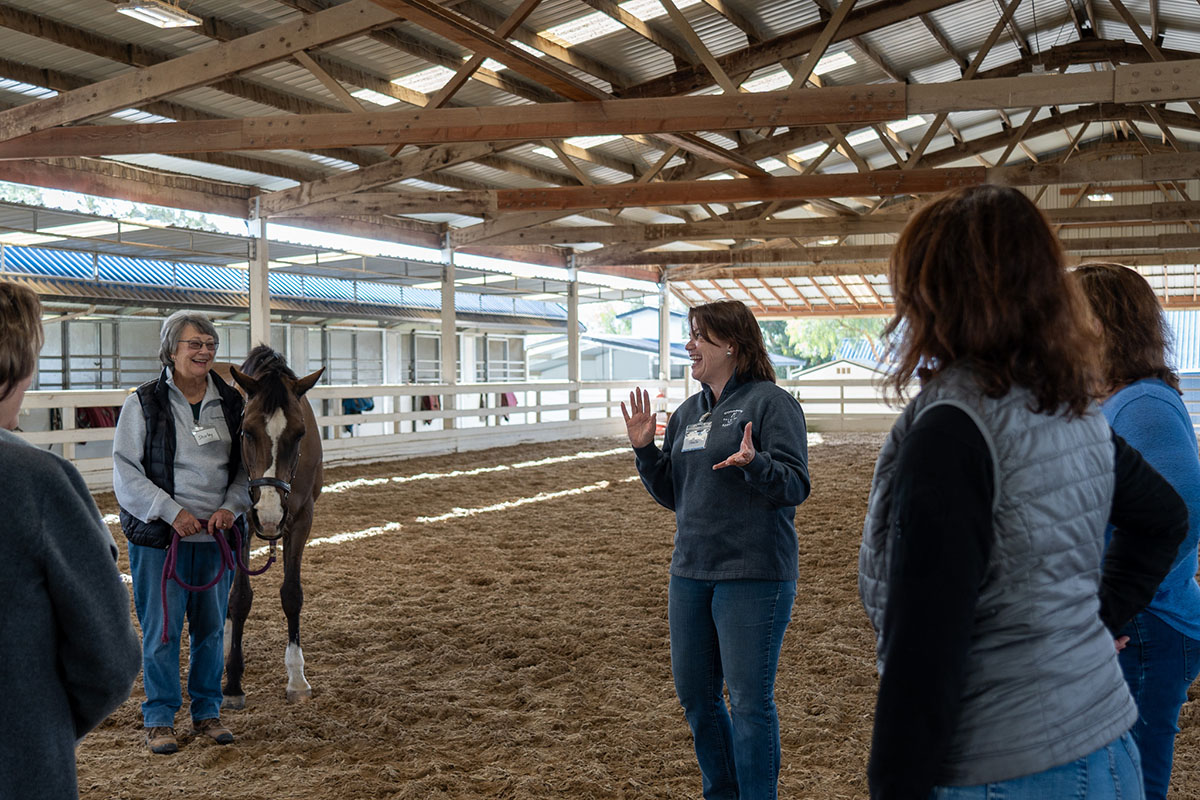June is Alzheimer’s and Brain Health Awareness Month. Recent research by Dr. Dean Ornish adds to existing studies showing the importance of a healthy lifestyle for proper brain functioning and to slow the progression of dementia. In this post, we will explore the many ways Connected Horse enhances brain health.
Understanding Connected Horse
Connected Horse’s programs offer a unique blend of mindfulness practices, therapeutic equine-guided exercises, and social support group activities. Our approach emphasizes being in the moment and engaging in failure-free experiences that focus on sensory involvement and non-verbal communication. Central to our program is the establishment of a trusting bond between participants and horses. These interactions help participants develop a sense of connection and empathy with the horses, fostering emotional regulation, stress reduction, and improved self-awareness.
Benefits for Brain Health
Stress Reduction: Interacting with horses in a serene outdoor environment can significantly reduce stress levels. The practice of rhythmic grooming and mindful breathing with horses induces a calming effect on the nervous system, lowering cortisol levels and promoting relaxation. Chronic stress is detrimental to brain health, contributing to cognitive decline and other health challenges.
Cognitive Stimulation: Activities such as haltering or leading horses require substantial cognitive engagement. Participants must negotiate with the horses, find a collaborative approach, adjust their actions accordingly, and communicate effectively without words. These cognitive challenges stimulate neural pathways involved in decision-making, spatial awareness, and executive function. Engaging in such tasks can enhance mental agility and preserve cognitive functions.
Emotional Regulation: Horses are highly attuned to human emotions, making them effective partners in promoting emotional regulation. Through interactions with horses, participants become more aware of their responses and impact on others. The unconditional acceptance and non-judgmental nature of horses create a safe space for individuals to explore and express their feelings, fostering emotional resilience and self-confidence. This emotional support is crucial for mental health and can lead to better emotional regulation.
Social Connection: Connected Horse workshops are conducted in groups, providing opportunities for social interaction and peer support. Building connections with fellow participants who share similar experiences fosters a sense of belonging and community, which are vital for overall well-being. Social isolation and loneliness are linked to an increased risk of cognitive decline and mental health disorders. The social aspects of these workshops help combat these risks, promoting brain health through enhanced social bonds.
Physical Exercise: Equine-assisted activities also offer physical exercise, which is essential for brain health. Regular physical activity enhances cognitive function, neuroplasticity, and mood regulation, reducing the risk of age-related cognitive decline and neurodegenerative diseases. The physical aspect of interacting with horses, such as walking, grooming, and riding, provides a comprehensive workout that benefits both the body and the brain.
In summary, Connected Horse offers a multifaceted approach to promoting brain health. By reducing stress, stimulating cognitive function, aiding emotional regulation, fostering social connections, and providing physical exercise, these activities contribute to maintaining and enhancing brain health across various dimensions.
We encourage everyone to take a moment to breathe and, if possible, visit us and our horses at the barn!



